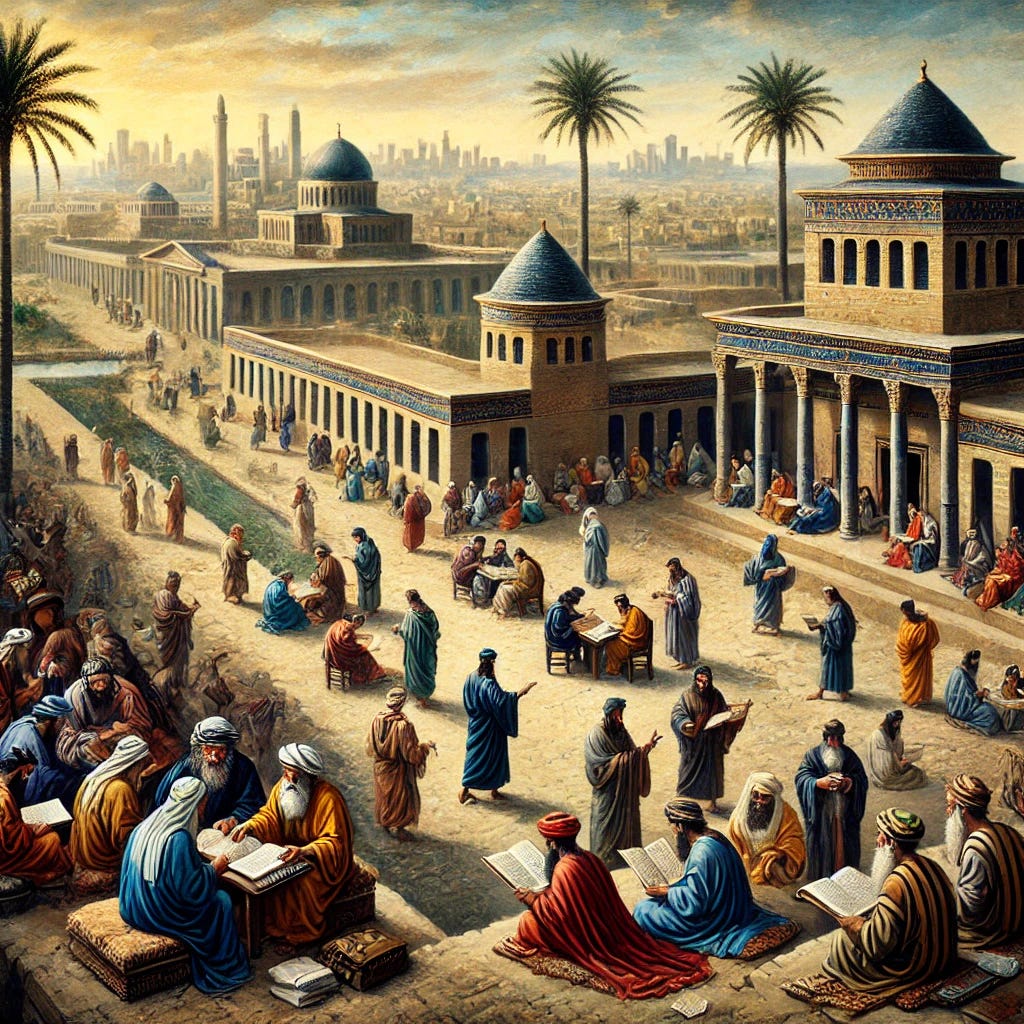Would Rav Truly Cite Pumbeditan Variants?
In today’s daf, Sanhedrin 28a-b, there was a short story about Rav who went shopping and was asked a halachic question.
רַב אִיקְּלַע לְמִזְבַּן גְּוִילֵי. בְּעוֹ מִינֵּיהּ: מַהוּ שֶׁיָּעִיד אָדָם בְּאֵשֶׁת חוֹרְגוֹ?
Rav arrived at a certain place to buy scrolls of parchment. They asked of him there: What is the halakha as to whether a man can testify with regard to the wife of his stepson?
Next, we have Rav’s answer:
בְּסוּרָא אָמְרִי: בַּעַל כְּאִשְׁתּוֹ.
בְּפוּמְבְּדִיתָא אָמְרִי: אִשָּׁה כְּבַעְלָהּ.
Artscroll’s translation of this is:
Rav answered them: In Sura they say: A husband is like his wife. In Pumbedisa they said: A wife is like her husband,
Then, footnote 2 begins, “These are two different ways of saying the same principle. A husband and wife form a single unit in regard to kinship.”
In other words, it is a distinction without a difference. But, what seems strange is that Rav knows about Pumbedita as a place that has a variant saying than Sura. Sure, Rav knows Sura, where’s he’s based, but isn’t Pumbedita academy established by his student Rav Yehuda after his death?
My explanation accords with what I now see Rav Steinsaltz wrote:
בְּסוּרָא אָמְרִי: בַּעַל כְּאִשְׁתּוֹ.
In Sura they say that Rav gave the following answer: A husband is considered like his wife. Since he is married to the son’s mother, the son’s wife is considered like his daughter-in-law.
בְּפוּמְבְּדִיתָא אָמְרִי: אִשָּׁה כְּבַעְלָהּ.
In Pumbedita they say a different version of Rav’s answer: A wife is considered like her husband. Therefore, the wife of his stepson is considered like his stepson, and he cannot testify about her.
That is, this is a difference between the version of Rav’s statement in these two academies. Maybe, as I was writing about earlier, it’s even a variation between the Suran Talmud and the Pumbeditan Talmud. And, in this case, this is just a difference in how they expressed the same idea.


